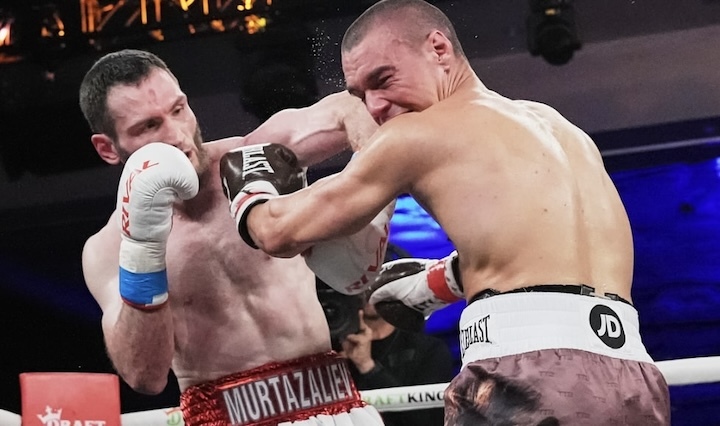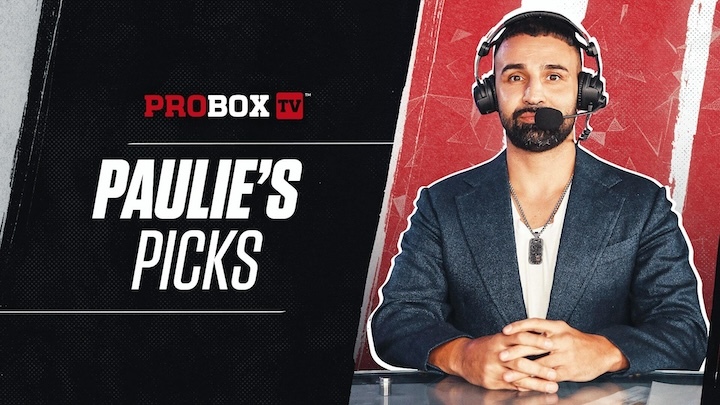I rated Tim Tszyu highly before he entered the ring with Bakhram Murtazaliev – and I still rate him highly.
There are some fighters who seek to protect their records and their brands, and there are others who fight everybody constantly, provide us with the most consistent entertainment, and don’t get the same rewards – and Tszyu is one of those. It’s little wonder there are so many fighters who are reluctant to take risks.
None of which is to say that fighting Murtazaliev wasn’t a difficult night for him – which is even more unfortunate, given it was his first fight since the unfortunate, badly-handled circumstances of his fight in March against Sebastian Fundora, which would have been a routine win for him until he suffered that cut.
I knew Murtazaliev was dangerous, but I didn’t expect him to beat Tszyu. The odds in Tszyu’s favour were ridiculous, and demonstrated, once again, that when promoters – ProBox included – make the most evenly matched fights, the oddsmakers are clueless about how to treat them. They’ve been spoiled by the many fights it’s easy to make odds for that they struggle to handle others, which is why so recently we’ve had upsets recorded by Murtazaliev and Omar Salcido over Chris Colbert.
It’s been reported that Tszyu was told by his team not to take risks in the opening four rounds, which is understandable, because the lack of knowledge that previously surrounded Murtazaliev meant that Tszyu was going into a dark room. It’s easy to say that he should have listened – even though he should have – because the emotional side of fighters can get the better of them. It’s very clear Tszyu wanted to prove something – and has wanted to since losing via split decision to Fundora.
He was trying to fight Vergil Ortiz Jnr as soon as he could, after that first loss. He then willingly fought Murtazaliev. Even if he’d been told not to take those risks by his team, I believe he’d decided before he entered the ring that he was going to come out and make the biggest possible statement by taking chances to win in spectacular fashion. He stepped into that dark room, and it blew up in his face and he became the victim of a statement instead.
That first knockdown, in the second round, certainly shocked him. Murtazaliev held his ground while watching Tszyu trying to throw his uppercut and did a catch-and-shoot with the left hook, and made it look effortless – and I question whether he ever recovered. He made the same mistake before another of the knockdowns, too – which highlighted a technical flaw. He has to “hold the phone” with his right hand when he’s throwing those punches.
When you’re fighting at close range like that it’s so important that you’re technically correct.

He seemed so hellbent on making that statement that instead of adjusting after that first knockdown, it was like he told himself it was a flash knockdown he’d suffered. “I’m not breaking my mentality – I came to make a statement and I’m going to go right back after him.” Instead, he kept getting hurt – the instructions to not take any chances in the opening rounds went out of the window entirely. Emotionally, that’s how fighters can be.
If it had been stopped any earlier, a fighter like Tszyu would probably have been very, very angry – so much so you almost have to let it go on a little longer. Other fighters, maybe not, but we all knew he had a different type of character when he agreed to fight Ortiz.
I’ve said it before – fighters from the east are different. So much so I’m tempted to make two pound-for-pound lists. One for “Hollywood” fighters, like Gervonta Davis and Devin Haney, and another for fighters who fight anybody and take losses – like Israil Madrimov, Serhii Bohachuk, and Tszyu, who don’t fight for a hobby but to be the best fighter possible. The criticism those who take losses get, by the way, is a lot to do with why “Hollywood” fighters exist.
Perhaps those fighters need to take easier fights when they’re coming off a loss – they don’t do that enough. But they deserve more admiration when there are so many “Hollywood” fighters who want to fight dishwashers for DAZN, ESPN and Amazon money. All I’ve heard about Tszyu is criticism, when all he’s done is continually try to fight the best – it’s really frustrating to watch.
After losing to Murtazaliev, the time has come for him to return to Australia and get a win or two there at a lower level. He has to make sure that, having gone straight from Fundora to Murtazaliev, this is a lesson learned. There will still be plenty of talented junior middleweights to fight when he’s ready to step back up.
It’s been suggested that whenever that is he won’t be the same fighter, which is possible, but it’s worth remembering that his father Kostya once got knocked out by Vince Phillips and had a couple of years when he wasn’t at the highest level. He had to take a step back before he returned to the top of the junior-welterweight division and reigned as champion.
Murtazaliev was very impressive, and deserves more credit. He was already the IBF junior-middleweight champion, and even though I thought he was good and that the odds against him were ridiculous, I also underestimated him – I didn’t expect him to win. He’s become another player in a very, very good weight class, and one populated by fighters willing to fight each other – Ortiz and Terence Crawford included.
On Saturday, Jack Catterall fights Regis Prograis in Manchester, in what’s an appealing fight. Catterall looks, to me, to be attempting to stay busy and continuing to build his name, because he can certainly fight – and Prograis has become like Catterall’s former opponent Jorge Linares. He’s past his prime, and it’s difficult to say what victory over him should do for Catterall – who impressed in both fights with Josh Taylor – because against Haney, Prograis didn’t appear to have too much left.
Catterall should have too much for Prograis, who’s becoming an opponent, and earn a decision. Catterall’s very crafty – victory will build his resume and lead to demands for him to have bigger tests.


ADD COMMENT VIEW COMMENTS (1)